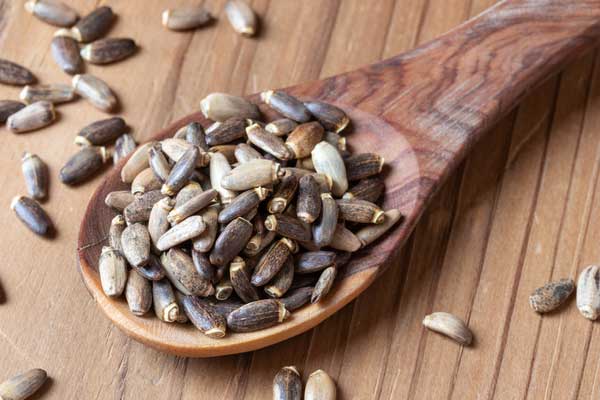Milk thistle has long been touted as a powerful liver cleanser and protectant, but does the science actually back up these claims? Newer evidence suggests milk thistle may not work through antioxidant effects as previously thought. Instead, it seems to have a remarkable mechanism of action that works primarily by altering gene expression and inflammation pathways.
In this article, we’ll break down what the latest research says about how milk thistle affects the liver, why mouse studies have shown impressive results that don’t always translate to humans, and whether milk thistle can really help cleanse or protect your liver if you’re consuming alcohol or other substances that tax your hepatic system.

How Milk Thistle Affects Gene Expression and Inflammation
The active compound in milk thistle, known as silymarin, has two primary effects on the liver:
- It induces endoplasmic reticulum stress
- It promotes the modulation of inflammation
Inducing Stress to Build Resiliency
Endoplasmic reticulum stress sounds quite alarming. Why would we actually want to purposefully stress this organelle?
It turns out that creating low levels of stress can sometimes build resiliency. When milk thistle triggers mild endoplasmic reticulum stress, it essentially puts the liver on high alert so it can respond better to damage. This is the mechanism behind potential “protective effects” of milk thistle.
However, it’s questionable whether self-inflicted stress is truly protective if there are other existing stressors on the liver. For example, would drinking alcohol to stress your liver actually make it healthier? Probably not.
Modulating Inflammation is Key
Arguably the more important effect milk thistle has is modulating inflammation. By altering inflammatory pathways, milk thistle helps the liver regulate itself and return to homeostasis.
Mouse Studies Show Dramatic Changes, But What About Humans?
In mouse models, milk thistle shows significant impacts on liver health by:
- Altering endoplasmic reticulum stress
- Activating AMPK enzymes
- Suppressing mTOR
- Changing mitochondrial metabolites
These cellular changes indicate reduced liver fibrosis, improved protein recycling, and increased autophagy. Simply put, mouse livers appear healthier and better able to regenerate when given milk thistle.
Yet human studies are far less clear cut. A meta-analysis found no significant changes to liver enzymes or function in humans taking milk thistle.
Why don’t the dramatic mouse outcomes translate? The key difference is likely dosage. Mice studies use extremely high concentrations of silymarin compared to what’s present in typical milk thistle supplements.
This means getting liver protection from milk thistle for humans is probably unrealistic without megadosing well above standard doses.

Can Milk Thistle Help With Liver Cleansing?
Based on its mechanisms, milk thistle shows more promise for helping cleanse livers compared to direct protection. By altering gene expression and inflammation, milk thistle may assist slightly dysfunctional livers to regain better function.
However, don’t expect miracles from basic doses of milk thistle alone if you’re drinking regularly or have significant liver strain. You’ll likely need to either megadose milk thistle or couple it with more comprehensive liver cleansing protocols.
How to Use Milk Thistle to Support Your Liver
If you want to use milk thistle to ease the burden on your liver, follow these tips:
- Couple it with liver cleansing habits like eliminating alcohol, processed foods, environmental toxins, and medications when possible. Milk thistle works best alongside overall reduced liver load rather than in spite of continuing strain.
- Consider periodically megadosing milk thistle instead of taking low doses daily long-term. Since higher doses seem necessary to impact humans, short bouts of heavy milk thistle supplementation make more sense.
- Get quality extracts standardized to 80-90% silymarin like Silymarin Force from Thorne Research or Clinical Milk Thistle from Integrative Therapeutics. These provide far more active compound than basic seed powder.
The bottom line is that milk thistle likely only supports liver function when rigorously extracted and dosed. It can’t singlehandedly override an ongoing onslaught of liver stressors. But as part of periodic cleansing efforts alongside improved diet and lifestyle habits, evidence suggests it may help give your liver a little extra boost.
